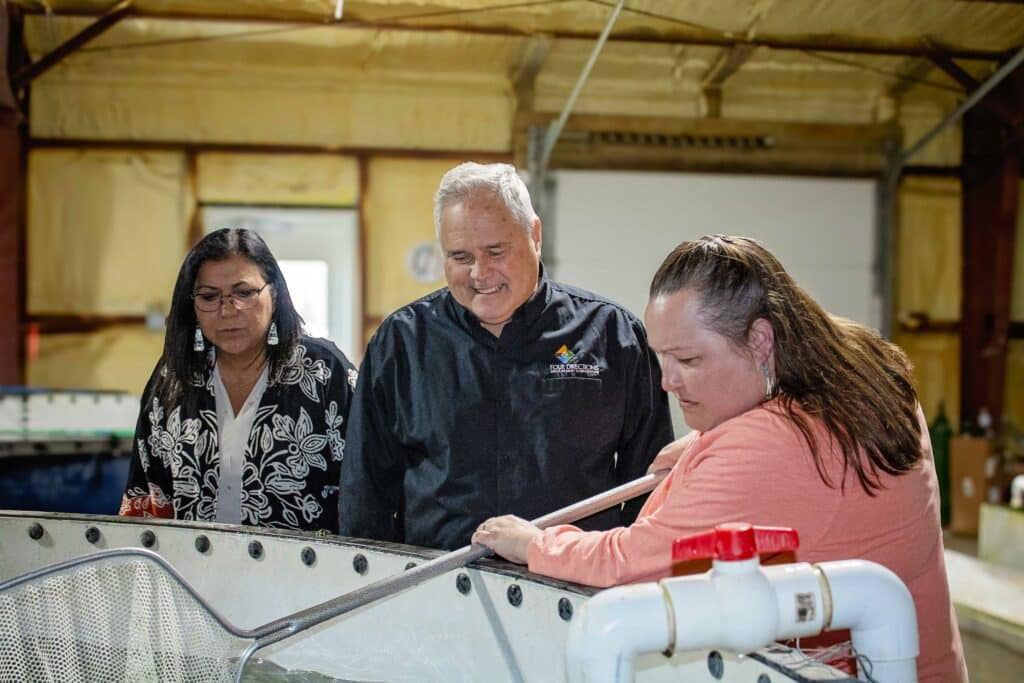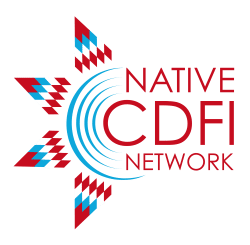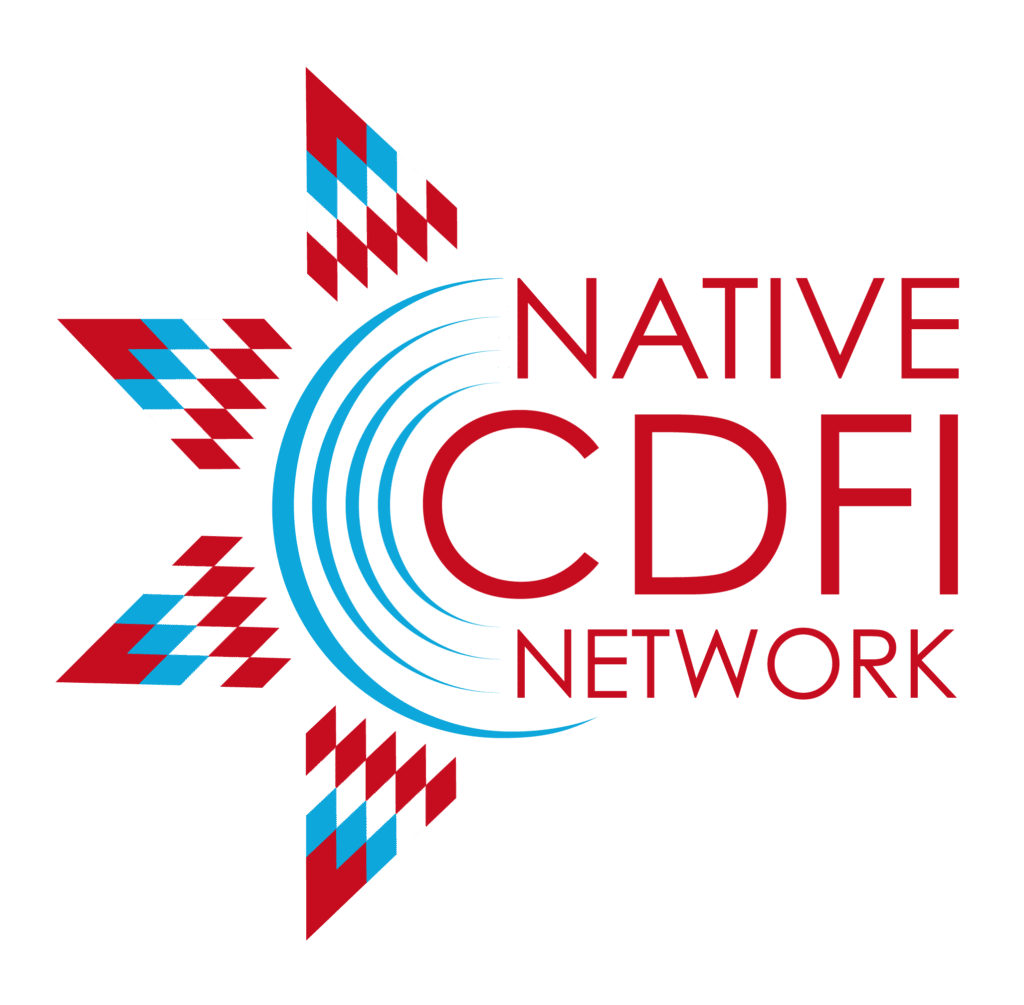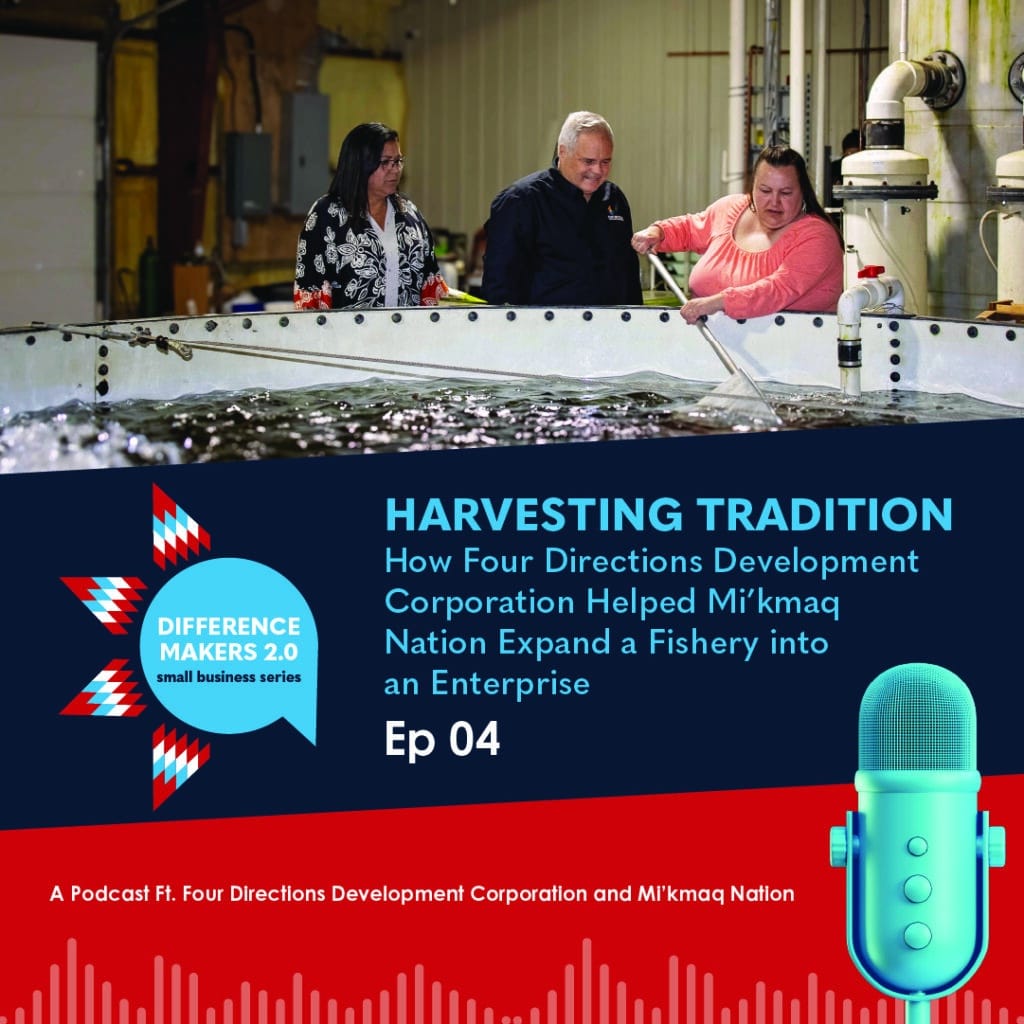Twenty years ago, citizens of the Mi’kmaq Nation in northern Maine faced significant challenges in sourcing brook trout, a traditional food for the federally recognized tribe. Polluted waters had rendered the most accessible fishing spots unsafe.
One of the popular spots to fish was the confluence where the Aroostook River meets the Presque Isle stream, which also happened to be near a wastewater treatment plant.
“All of the waters that had fishing advisories to not eat were the ones that were most accessible to our Mi’kmaq members,” Shannon Hill, a Mi’kmaq Nation citizen and head of the tribe’s Environmental Health Department, said. “We were obviously hesitant to encourage people to go fishing there. And that is where the seed was planted for the fish hatchery.”

In 2015, the Mi’kmaq Nation opened its own sustainable fish hatchery with two 16,000-gallon tanks yielding 12,000 pounds of brook trout each year. After harvesting, the fish make their way to tribal members, and what remains is sold at farm markets and wholesale retailers in the region.
Now, thanks to assistance from Four Directions Development Corporation, a Native CDFI that serves the Wabanaki Nations of Maine, the tribe is breaking ground this summer on a major expansion that will double the fishery’s capacity and nearly quadruple its yield — and its impact.
The expanded fishery will provide sustenance for the tribe’s members as well as economic growth and opportunities to bring their yield to a multi-billion dollar domestic fish market.
While the expansion received funding from the federal Economic Development Agency, those funds wouldn’t be available until the project broke ground. But there were plenty of costs to cover before then — lawyers, engineers, permits, and applications. Hill said that is where Four Directions came in with a line of credit to bridge the gap.
“They’ve always been so great to work with,” Hill said. “We didn’t really have the capital to do this on our own. Because of that line of credit, we were able to get started with the project and have the funds to pay for legal fees and engineering.”
Four Directions was founded and certified as a Native CDFI in 2001. It is the only Native CDFI in the region, serving the Native American tribes in Maine — the Maliseet, Mi’kmaq, Passamaquoddy, and Penobscot — through education and investment in affordable housing, tribal business ventures, and Native entrepreneurship. To date, the nonprofit has deployed more than $22 million in loans.
Along with the credit line, Four Directions helped the Mi’kmaq Nation with a feasibility study to determine if the expansion was a worthy investment for the community.
Jacques Delli Paoli, program manager for Four Directions, said community development lending is a long and involved process that relies on relationship building, listening to what a community wants and needs, and due diligence.
Delli Paoli said he was inspired by the hatchery’s potential the first time he visited it four years ago. He recognized that the brook trout harvested at the facility was a high-quality product that could meet market demand and bring economic gains to the tribe.
“I thought, ‘Wow, they could really expand this,’” Delli Paoli. “It already had a tremendous presence.”
Delli Paoli worked with the Mi’kmaq Nation for four years, attending tribal council meetings, meeting with directors, and consulting with the leadership. To raise funding, the tribe took the lead on grant applications, but Four Directions was there every step of the way with feasibility studies, business plans, and additional services, even assisting in the grant writing process.
“We do feasibility studies and market analysis — all the due diligence,” Delli Paoli explained.
That due diligence showed that the expansion was a sound investment, meeting the tribe’s needs and expanding its market reach. It also revealed opportunities for value-added products, such as lobster and other seafood, under a Wabanaki brand as part of a cooperative with the state’s other tribes.
“That would really enhance the economies of the whole region,” Delli Paoli said.
Hill said the Mi’kmaq Nation plans to continue to partner with Four Directions as the hatchery grows into a driver of economic development and, ultimately, sovereignty for the tribe.
“I foresee us being partners for a long time to come,” Hill said. “It’s really important to the Nation here to be able to provide not only food but workforce development and economic development. Eventually, we want to not have to rely on federal dollars or another entity telling us yes or no on projects. We want to be self-sufficient and make decisions that make sense for our people.
Difference Makers 2.0 is a new yearlong series that highlights how Native community development financial institutions (CDFIs) work alongside their small business clients to accelerate change and create economic opportunities in Native communities. Join the Native CDFI Network and Tribal Business News as they shine a spotlight on the people accelerating economic change in Indian Country. Read the stories here and be sure to tune into the Difference Makers 2.0 podcast.


